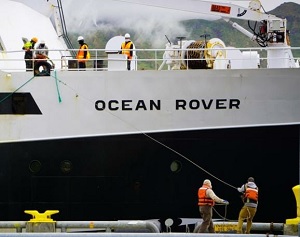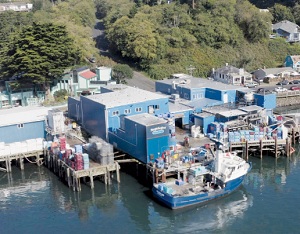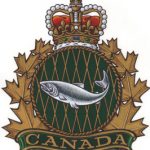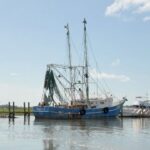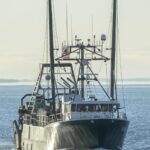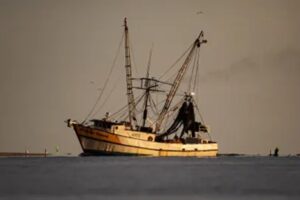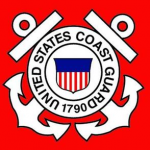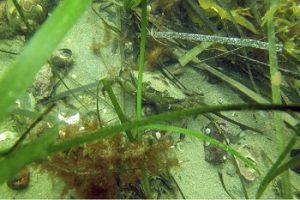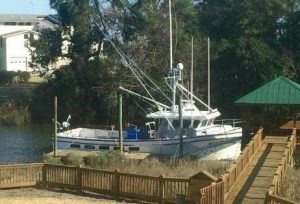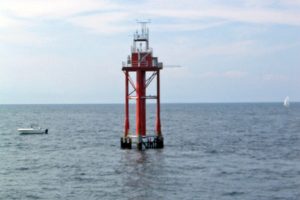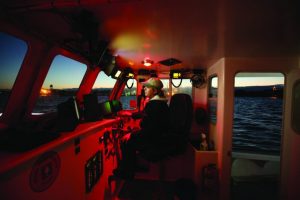Tag Archives: Coronavirus
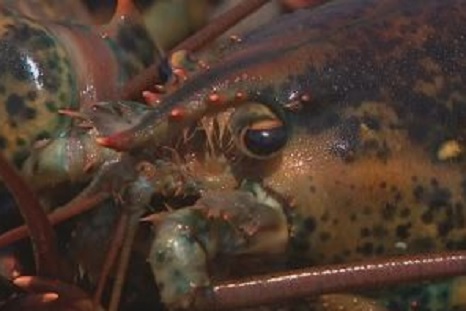
Nova Scotia Live Lobster Exports to China Hit a Snag
A recent coronavirus outbreak traced to a market in Beijing is disrupting Canadian live lobster exports to China. New testing measures imposed in at least three cities — Beijing, Shanghai and Guangzhou— have led to cancelled lobster shipments from Nova Scotia this week and delays for shipments that do arrive. “We’ve hit a significant snag,” said Geoff Irvine, executive director of the Lobster Council of Canada. “The latest news is that they will continue to do these random inspections, which has effectively caused many of the large shipments to stop.” >click to read< 10:22
Tasmanian lobster, abalone exports at risk as latest COVID-19 outbreak closes Beijing markets – “Australian seafood exports are not being blocked by China [but] authorities there have advised that they may conduct COVID-19 testing on live, fresh, chilled and frozen imports of Australian seafood upon arrival into China,” said chairman Nathan Maxwell McGinn. >click to read< 13:08
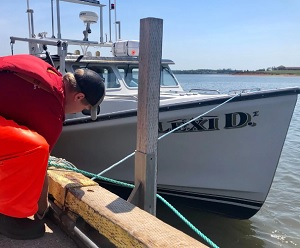
Lower prices, reduced markets ‘doesn’t make for good math’ – P.E.I. fishermen ask for four day season extension
The P.E.I. Fishermen’s Association (PEIFA) has asked for a four-day extension to the spring lobster season. The PEIFA made the request to the federal fisheries minister and the Department of Fisheries and Oceans (DFO) on June 16 to help offset the delayed start to the season. The season started two weeks late because of coronavirus and concerns over the safety of crews on boats, and questions over the demand and markets for lobster. According to the P.E.I. Lobster Marketing Board, about 200 fishermen have been dealing with quotas for most of the season, and prices are down substantially this year — most fishermen have been getting between $3.50 and $4.50 a pound for their catch. >click to read< 21:57
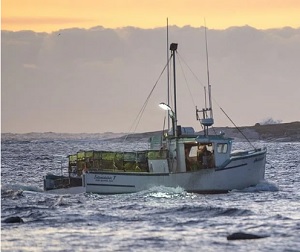
“Things could’ve been way worse”: Spring lobster season nears end amid coronavirus, “Things are stabilizing”
The Maritime Fishermen’s Union predicted a gloomy forecast for the spring season with the pandemic’s safety concerns, crushed markets and reduced processing capacity. But fishermen are taking it “day-by-day,” says the union’s executive director. “Things could’ve been way worse,” says Martin Mallet. “At least our fishermen have had a chance to go out and catch part of their catch.” Restaurants reopening is also helping market demand increase. >click to read< 08:49
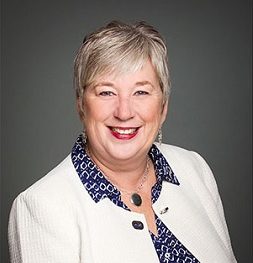
Here’s how to get a piece of $62.5 million in fish processors’ Coronavirus aid
It’s been two months since the federal government rolled out a $62.5-million aid package to support seafood processors affected by Coronavirus, and a $469 million program to aid fish harvesters. So far no one has seen a cent of funding from either package. Today, June 16, seafood processing companies are a little closer. Bernadette Jordan, Minister of Fisheries and Oceans Canada, announced details of how the $62.5 million from the Canadian Seafood Stabilization Fund (CSSF) will be divvied up across Canada, and how to apply. Of the $62.5 million, Atlantic Canada gets the lions’ share — $38.1 million. Seafood processors in Quebec and Western Canada will also get a share of CSSF. >click to read< 14:48
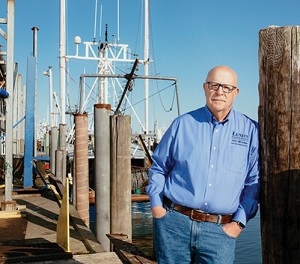
New Jersey’s Commercial Fishing Industry Struggles to Stay Afloat
In the wake of the pandemic, the industry—the fifth largest in the country—has been in rough waters. Will July and August bring relief? Atlantic Cape Fisheries, of which Sam Martin is chief operating officer, is a large commercial fishery as well as New Jersey’s largest producer of farmed oysters. “Last year we sold 2.5 million oysters, and we planned to sell 5 million this year, but sales so far are down about 80 percent compared to last year.” The bottleneck that Martin spoke of has throttled not only oystering, but New Jersey’s entire commercial fishing industry, “When I tell my boats to go fishing, I tell them, ‘Don’t bring in a lot,’” says David Tauro, general manager of the docks at the Belford Seafood Co-Op Belford, founded in 1953, is the smallest of New Jersey’s six commercial fisheries, but its pain is shared by the larger ones, such as Viking Village in Barnegat Light and Lund’s Fisheries in the state’s largest commercial fishing port, Cape May. >click to read< 17:53
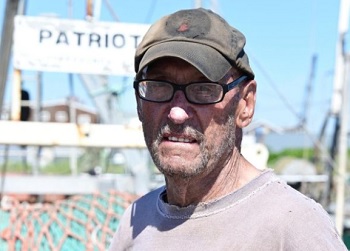
Long Island Coronavirus Hangover: Fishermen’s business remains in the doldrums even as restaurants reopen
While many local fishermen sell to local retailers, a steady local business even through the pandemic, the lion’s share of local fish go to companies that distribute to restaurants throughout the region and across the country. Three months of lockdowns over the coronavirus has backed up the market for the products, leaving warehouses for local frozen fish such as squid fully stocked, while drastically reducing demand for local clams and oysters..,, The summer is normally a prime time for fishing trawlers that harvest squid, said Greenport commercial fisherman Mark Phillips, but the market has been backed up by months of shutdowns and a closure of some export markets, including to China. Phillips said he was hopeful the start of restaurant reopening increases demand for squid, his primary fishery right now. >click to read< 07:47

Fighting for fishermen on a bi-partisan, bi-coastal basis during Coronavirus crisis – Senator Ed Markey
Restaurants have shuttered and large export markets have been disrupted. Fishermen have lost access to critical points of sale and sources of income. With a decreased demand for fresh seafood, many boats sit idle in port. Meanwhile, boat payments are due and families need to be fed. In the U.S. Senate, I have been fighting on a bipartisan basis alongside Sen. Elizabeth Warren and Alaska senators Lisa Murkowski and Dan Sullivan to secure dedicated economic assistance for the fishing and seafood industries in COVID-19 economic relief packages. Thankfully, this bi-coastal effort got results. The Coronavirus Aid, Relief, and Economic Security (CARES) Act, enacted into law on March 27, included $300 million in assistance for fishery participants and $9.5 billion for affected agricultural producers. >click to read< 12:22
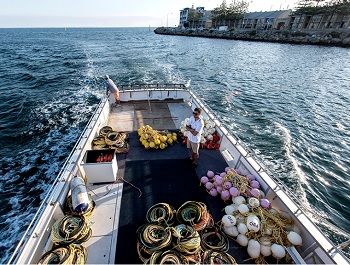
Can we really break the China habit?
China is a hard habit to break.Even after its early mishandling of the coronavirus disrupted the country’s ability to make and buy the world’s products, further exposing the faults of its authoritarian system and leading it to ratchet up its propaganda war, China’s economic power makes it the last best hope for avoiding a protracted global downturn.“When this all started, we were thinking, Where else can we go?” said Fedele Camarda, a third-generation lobster fisherman in western Australia, which sends most of its catch to China. “Then the rest of the world was also compromised by the coronavirus, and China is the one getting back on its feet.”“Although they’re just one market,” he added, “they’re one very big market.” >click to read< 10:56
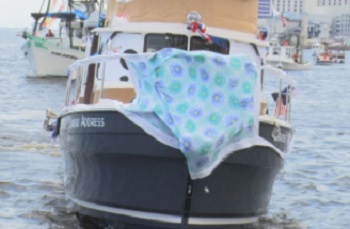
“This community is very resilient” – Coronavirus doesn’t stop 91st annual Blessing of the Fleet in Biloxi
It’s going to take more than a tropical storm and a worldwide pandemic to stop the Blessing of the Fleet in Biloxi. On Sunday, the 91st annual event took place with a few changes, including one that brought back a tradition to the tradition. Normally, the holy water comes from a much bigger boat, but this year because of COVID-19 concerns, it was launched from the stern of the Terri Lynn – the shrimp boat of this year’s Shrimp King Eddie Rhodes. “It’s a big honor to have everybody on it,” he said. “This doesn’t usually happen.” >click to read< 08:29
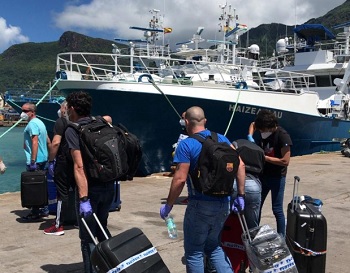
Stranded at Sea in The Time of Coronavirus
Spanish fisherman Josu Bilbao boarded a Qatar Airways flight headed for the Seychelles in January, just as he had done for the past 15 years. Ahead of him, four uninterrupted months of hauling tuna out of the glistening Indian Ocean. As it turned out, catching the fish was the least of the problems for the 56-year-old captain of Albatun Tres, one of the world’s largest tuna fishing boats. The coronavirus then swept the world, countries shut borders, planes stopped flying and Spain became one of the countries worst hit by the virus. Bilbao and his crew were stuck. As the Indian Ocean fleet shift was extended ship owners tried to figure out a way to get workers home. Aboard the ship avoiding infection became the priority. >click to read< 09:43
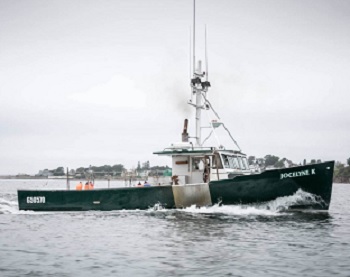
I’m a Maine lobsterman. I leave a lot of my life up to chance. But I don’t know if I can handle this level of uncertainty.
Herman Coombs is a lobster fisherman in Orrs Island, Maine. He’s been fishing since elementary school, he says, and went full-time after high school. In all those years, he can think of two times when the price of lobster has been any lower—in 2001, in the weeks after 9/11, and during the Great Recession. With restaurants in Portland and Lewiston—Maine’s largest cities—still closed for dine-in seating, and the state’s crucial tourism industry sure to take a massive hit this summer, he’s worried. “Right now, we’re only hauling about once every two weeks. That’s because of the weather. We’re getting a lot of wind in the afternoons, which ends up being pretty gusty, and isn’t a lot of fun. And the prices.,, >click to read< 11:19
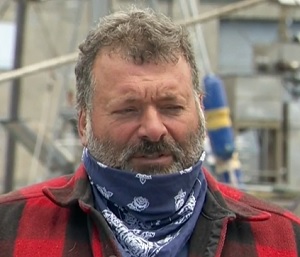
Fisherman’s Wharf: Restaurant threatens commercial fishing operation’s survival over a parking lot conflict
The parking area at Pier 47 could be used for al fresco dining as soon as next week but that space is where Giuseppe Pennisi, of Pioneer Seafoods, has been selling fresh-caught fish right off his boat for years. Now, the Port of San Francisco has ordered him to stop. “They said our business was causing problems for Scoma‘s but there’s no one even down here anymore except for people buying a few fish,” Pennisi said. Scoma’s owner Tom Creeden says they’ve submitted plans to Port of San Francisco officials to use the parking space for outdoor dining. Pioneer Seafoods will have to shut down its operations by June 15 after being given less than five days notice. It would also be a blow to Glide Memorial Church in San Francisco, which receives 3,000 pounds of fish from Pennisi every two weeks to feed the homeless. >video, click to read< 08:37
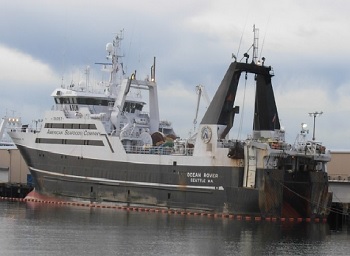
Crew of Alaska bound factory fishing trawler worries after company rejects more Coronavirus screening
American Seafoods will forgo additional COVID-19 screening of the Ocean Rover factory trawler, a move that has some crew worried and wanting more assurances the disease has not found its way onto the Alaska-bound vessel. American Seafoods has been buffeted in the past two weeks by test results from crews of three other vessels unloading frozen fish in Bellingham. Testing positive: 94 crew on the American Dynasty, four on the American Triumph and 21 on the Northern Jaeger, findings that rattled the North Pacific seafood industry, which is struggling to keep the virus off boats and shore-based plants as the busy summer harvest season approaches. >click to read< 18:48
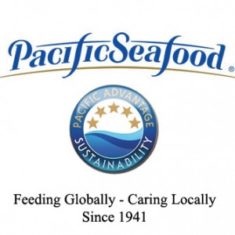
Pacific Seafoods Charleston branch unaffected by coronavirus
While the Newport branch of Pacific Seafood has recorded 124 positive cases of COVID-19, the Charleston branch of the same company has been unaffected. “The cluster of COVID-19 cases in Newport has not impacted our operations or team members in Charleston. No workers from Newport have relocated to Charleston, or to any other facilities,” said Lacy Ogan,,, Pacific Seafood in Charleston has reported that safety precautions are in place. These steps have included increased cleaning protocols, face coverings, daily temperature checks, staggered shifts to allow for less people together and restricted access provided to the facility. >click to read< 16:43

Golden and Graves introduce bi-partisan legislation to make disaster relief funds available to fishermen
In a bipartisan effort, Rep. Jared Golden (D-Maine) and Rep. Garret Graves (R-Louisiana) on Thursday introduced legislation to make additional disaster relief available to thousands of fishermen whose businesses are harmed by a pandemic. The legislation would amend the Magnuson-Stevens Fishery Conservation Act to allow fisheries disasters to be declared due to pandemic, such as Coronavirus. My bipartisan bill with Congressman Graves would make pandemics an allowable reason to declare a fisheries disaster, opening up a process to direct federal relief funds to affected fishing communities. >click to read< 11:55
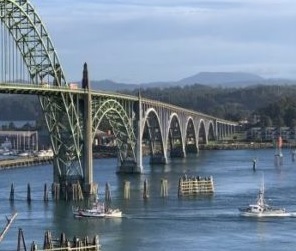
In Newport, a coronavirus outbreak spreads to local economy
Pacific Seafood ceased operations at all five of its Newport plants. The Oregon Health Authority said the outbreak is contained to Lincoln County and that risk to the public is low. But Newport Mayor Dean Sawyer said most of those who tested positive are locals. The town’s economy is hurting again without a major fish buyer and supplier. And businesses are shutting back down to try to slow the spread of the virus. “They live here, they work here, they’re community-based people,” Sawyer said. “And, of course, the problem with that is that people live and work with people that work in other industries.” >click to read< 12:16
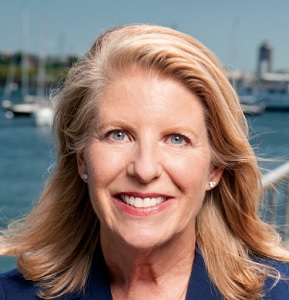
Why New England Aquarium is fighting back against the Trump administration
Decades of work at the New England Aquarium went into securing special protected status for an area of underwater canyons and mountains off Cape Cod.,, During a visit to Maine last Friday, President Donald Trump announced he was signing a proclamation to allow commercial fishing in the nearly 5,000-square-mile ecosystem, which was declared a national marine monument by former President Barack Obama in 2016.,, Vikki Spruill, the CEO and president of the New England Aquarium, called the Republican president’s proclamation“irresponsible and shortsighted.” “The Trump Administration has chosen a moment of national vulnerability to take aim at the environment,” Spruill said in a statement Monday, referring to the COVID-19 pandemic and the national protests against police brutality. >click to read< 13:00
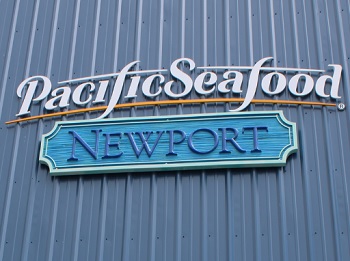
UPDATED: 124 cases reported – Pacific Seafood Coronavirus outbreak due to out-of-state workers, say former employees
James Nelson, a 10-year veteran at Pacific Seafood, said he had to quit his job May 8, “due to the COVID-19 virus,” and said he was forced to resign after expressing concern over the company bringing in “100+ migrant workers” from California to process seafood in Newport. Nelson said he would not put his family’s safety in jeopardy because implanting workers from a more contaminated area was too dangerous. He brought his concerns to managerial staff and said some had their own concerns, but they told him the higher-ups made the decisions. >click to read< 09:39
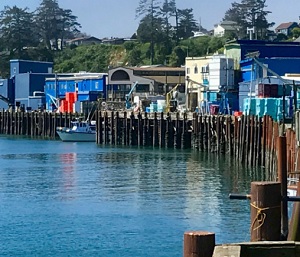 124 coronavirus cases reported at Pacific Seafood facilities in Newport – Pacific Seafood on Sunday disclosed that 124 of its employees and local contractors have tested positive for coronavirus in what is the second largest workplace outbreak of the virus in the state to date. >click to read< 10:43
124 coronavirus cases reported at Pacific Seafood facilities in Newport – Pacific Seafood on Sunday disclosed that 124 of its employees and local contractors have tested positive for coronavirus in what is the second largest workplace outbreak of the virus in the state to date. >click to read< 10:43
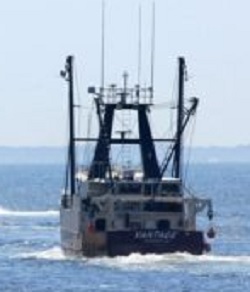
Mass Senators want an additional $500 Million in CARES Act Coronavirus Fisheries Assistance Funds
In their June 5 letter, the senators said $28 million in fisheries assistance already allocated to Massachusetts should be supplemented as the pandemic continues to affect demand through the summer month’s peak harvests. “Compared to the previous five-year average, in March and April of this year, Massachusetts bivalve shellfish landings lost 60 percent of their value, lobster landings lost 40 percent of their value, recreational head boats have been completely shut down, and seafood processors have lost their usual restaurant market,” the letter stated. >click to read< 11:25
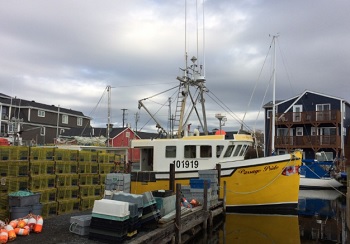
After months of lobster industry losses, things may finally be taking a turn for the better
“We’ve come through the pandemic and it’s been challenging for everyone, to say the least,” says Geoff Irvine, Executive Director of The Lobster Council of Canada. This week, lobster season opened for some parts of the Maritimes including the North shore of New Brunswick, some parts of PEI, Nova Scotia’s Northumberland Strait and pars of Nova Scotia’s Northumberland Strait. “We’ve seen the lobster market adjust quite dramatically from very strong demand and high, high prices, record prices in January pre-pandemic, and we’ve adjusted to a new reality and we’re in recovery mode now,” Irvine says. >click to read< 16:01
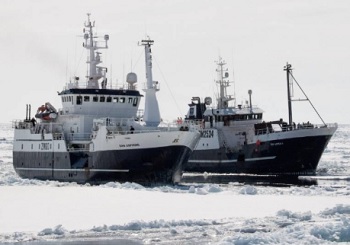
Coronavirus: 50-day mission to retrieve Kiwi fishermen underway
Sanford deep water fleet manager Darryn Shaw said the trip to the South Georgia Islands had been made necessary due to the impacts of Covid-19, which had made it difficult to get people out of the Falkland Islands, with just one flight a week going to the United Kingdom. “Normally we would bring our people back by air, via South America, but that is not possible at this time with borders closed into that region. We did look at bringing them home via the UK, but that was going to put them at risk of actually being exposed to Covid-19 as they would have to fly into the UK and move about between airports.” Many of the crew, who are fishing for toothfish, had already been at sea for 130 days – missing the entire Covid-19 lockdown – and were eager to get home to their families, Shaw said. >click to read< 12:02
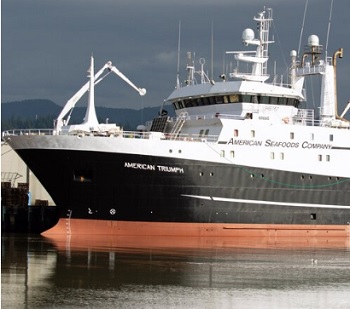
American Seafoods screening 2 more crews after most on third vessel test positive for Coronavirus
The new round of testing involves the crews of the American Triumph and the Northern Jaeger as they dock in Bellingham, according to a company statement. “We’re conducting these tests out of an abundance of caution,” said Mikel Durham, the company’s chief executive. All three of American Seafoods’ vessels had been participating in the Pacific whiting harvest off the Northwest coast with large crews onboard to operate the vessels and equipment that processes and freezes the catch. Last week, a crew member of the American Dynasty tested positive and was hospitalized in Bellingham. A subsequent screening of other crew determined that 85 were positive. >click to read< 16:42
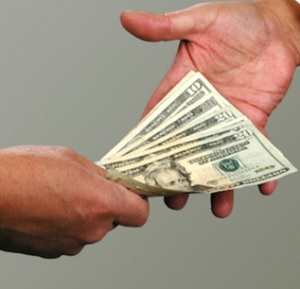
Criticism of federal handouts
I am living in a fishing town and the fishermen are fishing lobsters for a living. They are working hard trying to make a good living so they can pay their bills and support their families. Like everybody else, they have stress and they worry if they will be able to sell and get a good price for their labour. After reading the news about the province having a hard time finding labourers and immigrants having trouble to get into the province and work in the processing plants, I am stumped. We have unemployed students that could work these jobs but Ottawa — the way I read the news — will give them $2,000 a month,,, Simon LeMay, >click to read< 13:49

Alaska’s Coronavirus plans for fishing communities are now being put to the test
In a normal fishing season, Dan Martin would fly straight from the Pacific Northwest to the Aleutian Islands, where his pollock trawler, the Commodore, would be waiting for him to take the wheel. But this year, the veteran skipper is stepping onboard in Seattle, where he, four crew and two federal fisheries observers are taking COVID-19 tests and hoisting a quarantine flag. Then they’ll squeeze onto the vessel for a week-long voyage to Alaska’s biggest fishing port, Dutch Harbor in the Aleutian Islands. “We might have to eat in shifts,” Martin quipped. “Because I don’t know that we can fit that many people at our galley table.” >click to read< 09:41

Trump to to discuss commercial fishing while in Maine
President Donald Trump will hold a roundtable discussion with parties involved in the commercial fishing industry during his visit to Maine on Friday, according to a White House official. The president is slated to come to the Pine Tree State to visit the Puritan Medical Products facility in Guilford, which manufactures medical swabs used in coronavirus testing. The president is expected to discuss regulations and how to expand economic opportunities for the commercial fishing industry, according to the official. >click to read< 18:12

Bad lobster season affects everyone in Cape Breton
At this time of year, the local fishing wharfs are feeling the effect of the coronavirus on their bottom line. Lobster fishers are facing the reality of an overseas market that has dried up causing prices to plummet to an all-time low.,, When lobster fishermen have a bad year, everyone suffers. Car dealerships can’t count on the fishermen up-dating their trucks at the end of the season. Those new trucks will remain on the lot. The local fishermen are a generous group who give readily to local causes. You can’t give what you don’t have. A bad season affects us all. What can we do to help out? Start by eating more lobster. When lobster is cheaper than ground beef, now is the time to get a good feed. Treat yourself to lobster every week until the season is over. Order a few extra dozen and freeze for the Christmas season. By Yvonne Kennedy, >click to read< 16:08
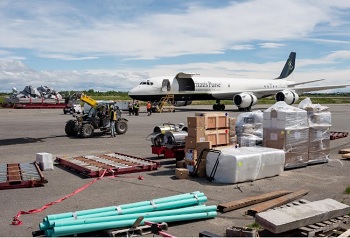
Being Ready: Samaritan’s Purse delivers 30-bed field hospital to Bristol Bay Borough
Samaritan’s Purse sent emergency field hospitals to Italy and New York this spring. Both places were badly hit by coronavirus. On Monday, the organization flew one to the Bristol Bay Borough. The borough is the epicenter of fish processing during the short sockeye fishery, and it’s population grows exponentially as seafood workers and fishermen come to the region. The 30-bed hospital can be set up within 48 hours. “It took a lot of cooperation, cause there’s a lot of — various agencies that had to cooperate. And they all did this at record speed, so I’m very thankful for the leadership of everybody who’s involved,” >click to read< 08:53
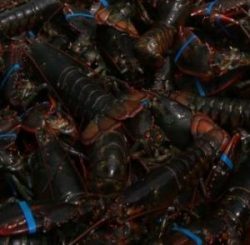
Cape Breton lobster fishermen struggle – ‘This is the first year I had to tell my fishermen I couldn’t move their product,’
There is a lack of demand due to the COVID-19 pandemic. As a result, the price for lobster has dropped to $4.25 a pound. In some areas, buyers are restricting the amount they purchase from fishermen. Marlene Brogan, the manager of Ballast Grounds Fisheries, a lobster buyer in North Sydney, said they’ve had to tell fishermen they can’t buy their catch some days. “We’ve been in business 21 years and this is the first year I had to tell my fishermen I couldn’t move their product,” said Brogan. She said there have been many days the fishermen at their wharf haven’t gone out to fish. >click to read< 14:19






